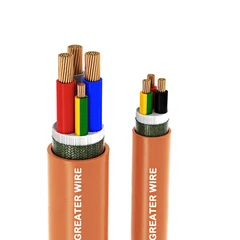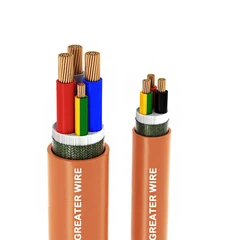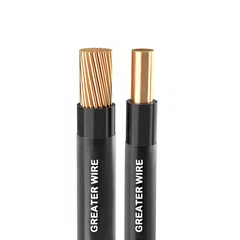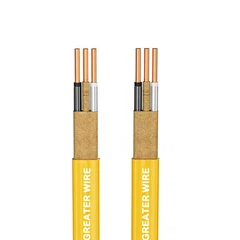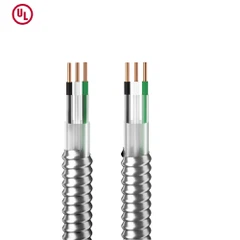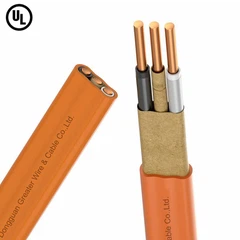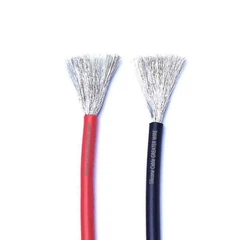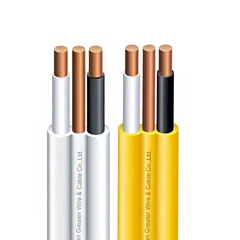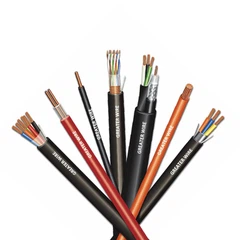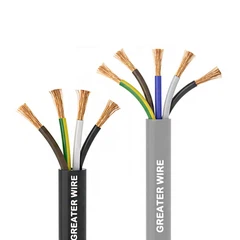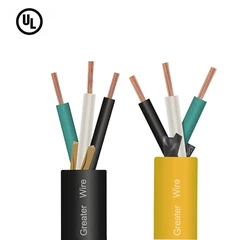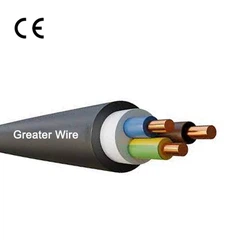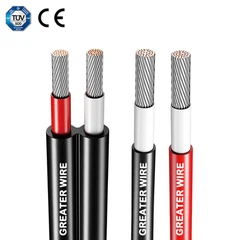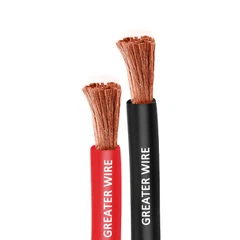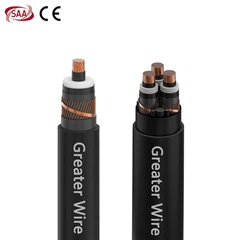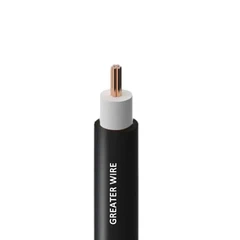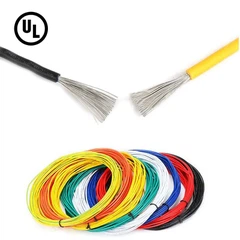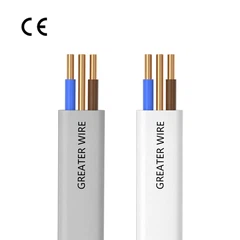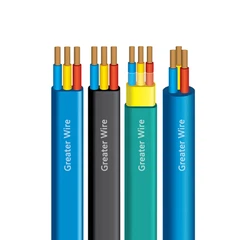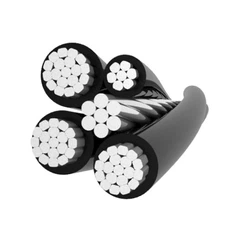When it comes to electrical wiring, one of the most common questions customers and engineers ask is: "Is hook-up wire the same as automotive wire?" On the surface, both seem similar-after all, they are insulated copper conductors used to carry electrical current. Yet, when we look closer, they are not identical at all. In fact, each serves unique purposes, is engineered with different materials, and is tested under different industry standards. Understanding these distinctions is critical, because choosing the wrong type of wire can affect performance, safety, and compliance.This article will walk you through what hook-up wire is, what automotive wire is, how they compare, and why selecting the right one matters for your application.
What Is Hook-Up Wire?
Hook-up wire is one of the most widely used and versatile types of electrical wire. It is typically a single conductor, either solid or stranded copper, insulated with materials like PVC, silicone rubber, PTFE (Teflon), or XLPE. The voltage ratings usually fall between 300V and 600V, while the temperature resistance can vary dramatically depending on insulation-from standard PVC (+70°C to +105°C) to silicone (+200°C) or PTFE (up to +250°C).
The primary role of hook-up wire is for internal wiring of devices and equipment. It is found in everything from home appliances, lighting systems, computers, and control panels to medical equipment and industrial machinery. Its design focuses on flexibility, stable conductivity, flame-retardant performance, and insulation durability in controlled environments.
For example, a PVC-insulated 18 AWG hook-up wire might be used inside a refrigerator to connect the control board to the compressor. Or a silicone-insulated UL3135 wire could be chosen for an industrial oven, because it must withstand high continuous temperatures. These examples show how hook-up wire is an "internal lifeline" that powers and connects devices reliably.

What Is Automotive Wire?
Automotive wire, sometimes referred to as low-voltage primary wire or vehicle wiring, is designed specifically for the electrical systems of cars, trucks, motorcycles, boats, and other vehicles. While it resembles hook-up wire in form-a copper conductor with insulation-the similarities stop there. Automotive wire must endure a far harsher environment.
Inside a vehicle, wires are exposed to constant vibration, bending, exposure to oil, gasoline, moisture, and extreme temperatures under the hood. To survive this, automotive wire is typically insulated with special grades of PVC or cross-linked polyethylene (XLPE), which offer higher abrasion resistance, better chemical resistance, and more reliable performance in fluctuating climates.
Standards also play an important role. Automotive wires often comply with SAE (Society of Automotive Engineers), ISO, or JASO standards, ensuring they meet safety and durability requirements for use in vehicles. For instance, SAE J1128 specifies types of primary wires for automobiles, including GPT, TWP, and SXL wires, each with unique insulation thickness and heat resistance.
Imagine the wiring harness under a car hood: dozens of automotive wires bundled together, delivering power from the battery to ignition, lighting, sensors, and infotainment systems. In such cases, using a general-purpose hook-up wire instead of an automotive-rated one could lead to insulation cracking, short circuits, or even fire hazards.
Common Ground Between Hook-Up Wire and Automotive Wire
Although their applications differ, there are undeniable similarities. Both hook-up wire and automotive wire:
- Use high-conductivity copper conductors, either bare or tinned, to ensure reliable electrical performance.
- Feature insulating jackets that protect against short circuits and environmental damage.
- Are available in multiple gauges (AWG sizes) and colors for easy identification and installation.
In other words, they share the same basic function of conducting electricity, but they are optimized for distinct usage environments.
Key Differences Between Hook-Up Wire and Automotive Wire
The real distinction lies in their design focus. Hook-up wire is about versatility and controlled environment performance, while automotive wire is about toughness in unpredictable and demanding conditions. Let's look at a few contrasts:
1.Insulation Materials and Durability
- Hook-up wire may use PVC, silicone, or PTFE to achieve flexibility and high-temperature resistance.
- Automotive wire often uses XLPE or special PVC blends to resist oil, fuel, and abrasion.
2.Standards and Compliance
- Hook-up wires are usually built to UL or IEC standards, depending on regional needs.
- Automotive wires must pass SAE, ISO, or JASO specifications tailored for vehicles.
3.Application Environment
- Hook-up wire is mainly for internal wiring of appliances, electronics, and industrial equipment.
- Automotive wire is installed in vehicles, where constant movement, chemical exposure, and outdoor weathering are present.
By comparing these aspects, it becomes clear that while both may look similar on the spool, they are purpose-built for very different realities.
How to Choose the Right Cable for Your Application
Selecting the correct cable begins with knowing your environment. If you are wiring the interior of a control panel, a UL1007 or UL1015 PVC hook-up wire may be ideal. If your project involves high-heat equipment like ovens, then UL3135 silicone hook-up wire is the better choice. On the other hand, if you are building or repairing vehicle wiring, you must select SAE J1128-rated automotive wire, such as SXL or TXL wires, which can withstand engine heat and fluids.
Think of it this way: using hook-up wire in an automotive harness is like wearing indoor slippers on a hiking trail-they serve a similar function but are not designed for the same stress. Choosing correctly avoids costly downtime, repairs, and safety risks.
Best Practices When Using Hook-Up Wire and Automotive Wire
No matter which type of cable you use, attention to detail ensures optimal safety and performance. Two considerations stand out:
- Match wire ratings to actual conditions: Always confirm voltage, current, and temperature requirements. For example, using a 300V hook-up wire in a 600V system could lead to insulation failure.
- Check certifications and authenticity: Ensure wires are UL-listed, SAE-approved, or carry the appropriate regional certification, so they comply with international safety standards.
By taking these simple yet crucial precautions, you guarantee your wiring system's reliability for years to come.
Are Hook-Up Wire and Automotive Wire the Same?
The short answer is no. While both share the basic purpose of carrying electricity, their designs, materials, certifications, and environments of use are distinct. Hook-up wire is a general-purpose internal wiring solution, while automotive wire is a specialized product built to endure the tough conditions inside vehicles. Confusing the two can lead to inefficient performance or safety issues, which is why knowing the difference matters so much.
Why Choose Dongguan Greater Wire & Cable Co., Ltd.?
At Dongguan Greater Wire & Cable Co., Ltd., we understand that different industries demand different wiring solutions. With over 30 years of manufacturing experience, a 50,000㎡ modern production facility, and fully automated conductor drawing, insulation extrusion, stranding, and sheathing lines, we deliver cables that meet the highest global standards.
We proudly export to more than 80 countries and regions worldwide-including North America, Latin America, Oceania, Asia, Europe, Africa, and the Middle East-and hold over 50 international certifications such as UL, CE, TUV, SAA, and IEC. Whether you need hook-up wire for electronic appliances, silicone-insulated cables for high-heat environments, or SAE-certified automotive wire, we provide customized solutions in conductor size, insulation type, color, length, and packaging.
More importantly, we combine technical expertise with responsive customer service. Our professional team is available 24/7 to answer your questions, provide technical support, and ensure fast delivery for all your projects. From small custom orders to bulk international shipments, our goal is to make sure you receive the right cable for the right application-safely, efficiently, and reliably.
Hook-up wire and automotive wire may look similar, but they are not interchangeable. Each has its strengths and defined usage environments. By understanding their differences and choosing wisely, you not only enhance performance but also guarantee safety and compliance. Dongguan Greater Wire & Cable Co., Ltd. is here to help you make the right choice, offering expert guidance, certified quality, and customized service for every wiring need.
Contact Us:
Dongguan Greater Wire & Cable Co., Ltd.
Tel/WhatsApp/Wechat: +86 135 1078 4550 / +86 136 6257 9592
Email: manager01@greaterwire.com

